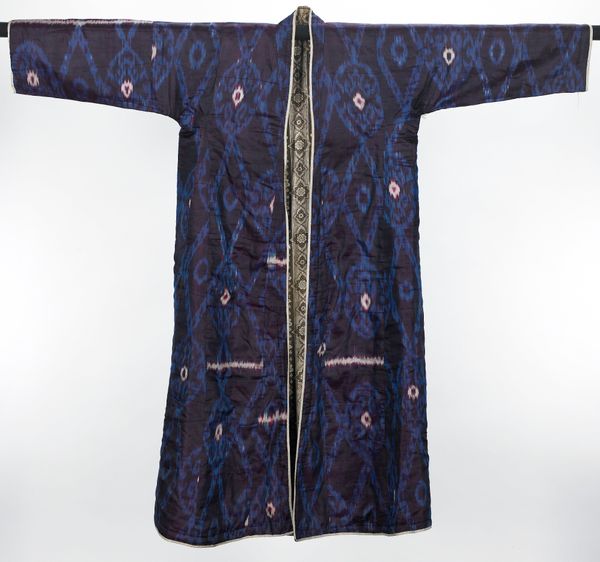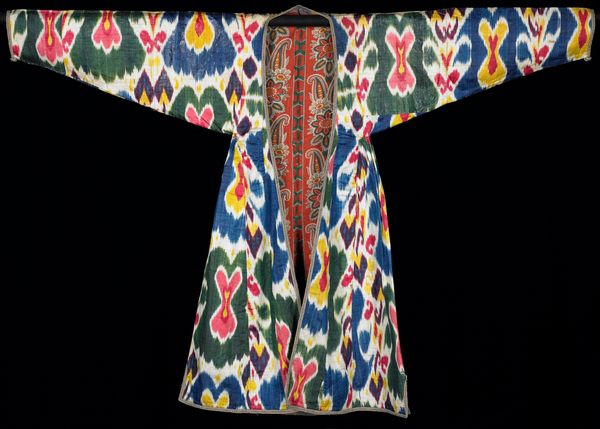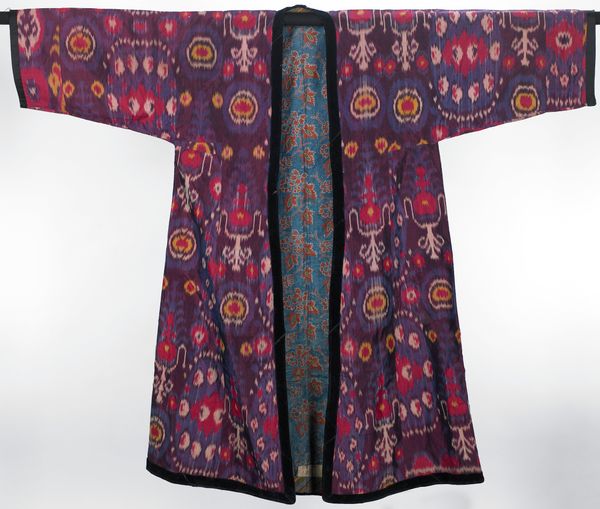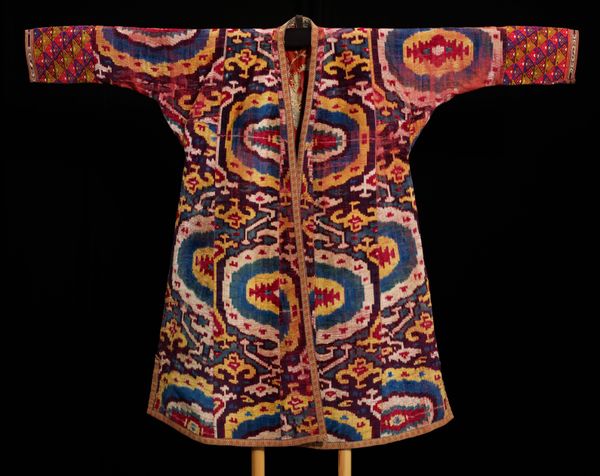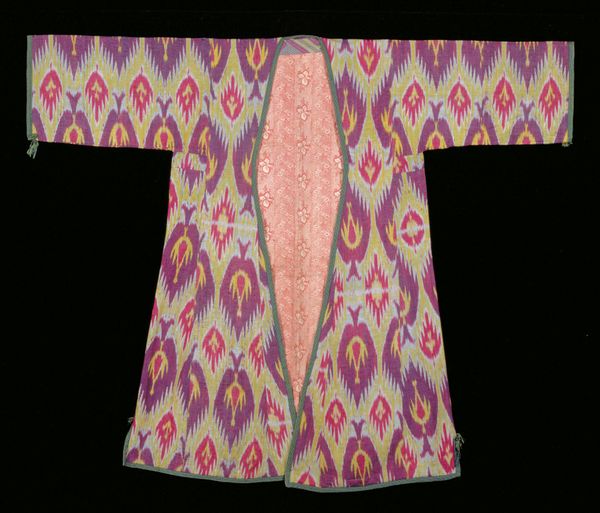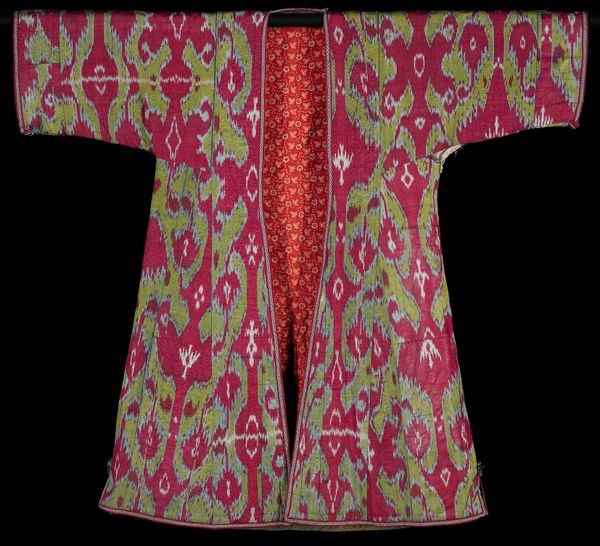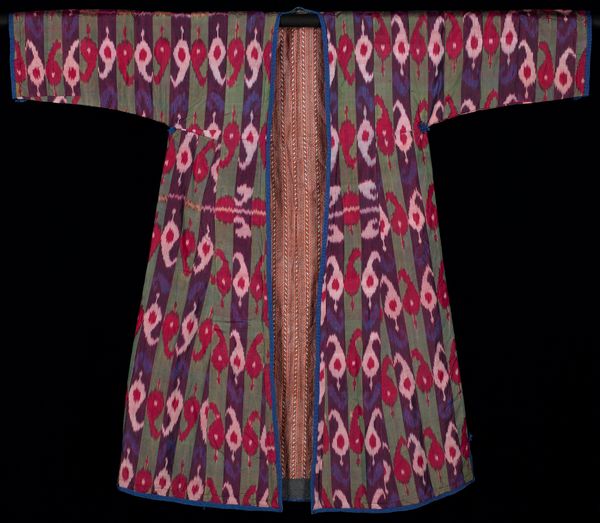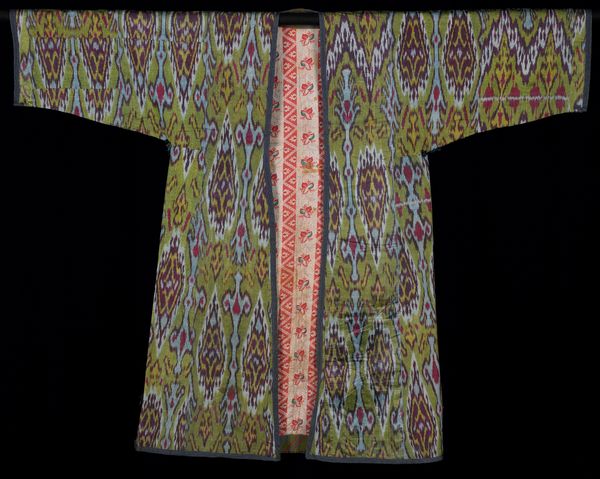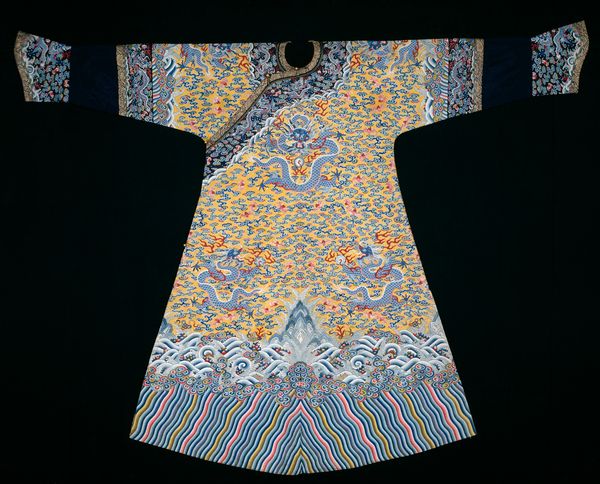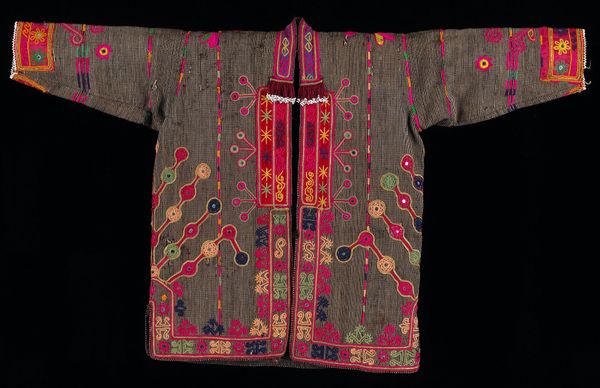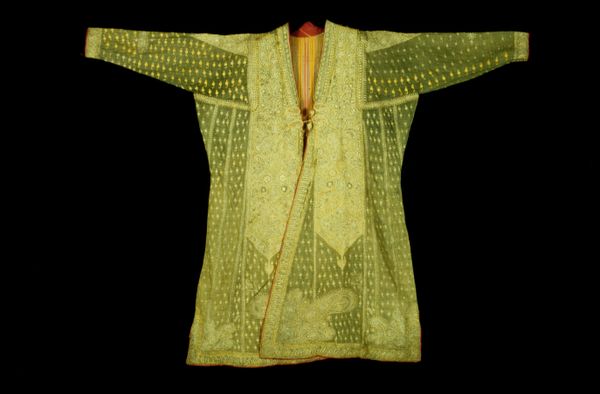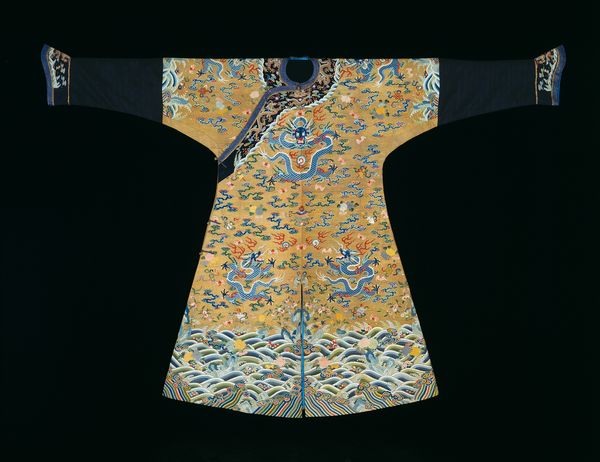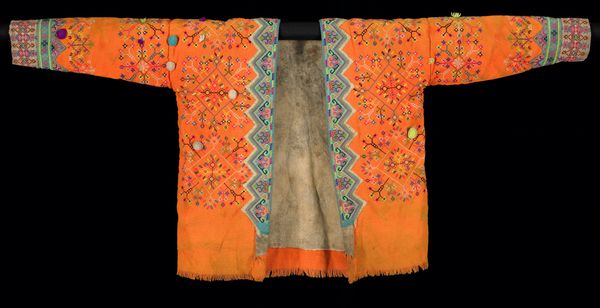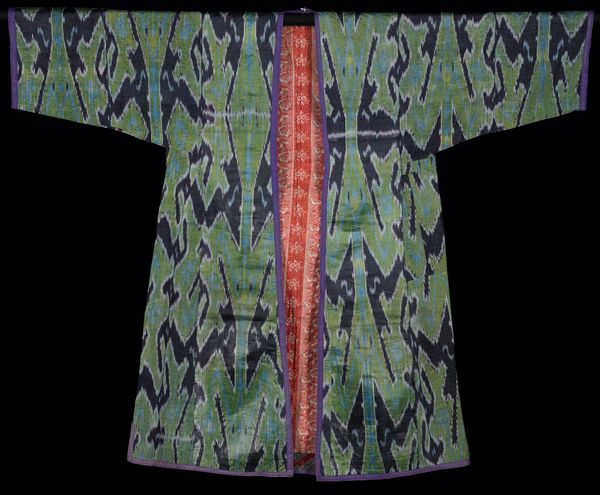
fibre-art, silk, textile, cotton
#
fibre-art
#
silk
#
textile
#
fashion and textile design
#
geometric pattern
#
abstract pattern
#
repetition of pattern
#
pattern repetition
#
cotton
#
textile design
#
beaded
#
decorative-art
#
layered pattern
#
funky pattern
#
combined pattern
Dimensions: 27 7/8 x 38 7/8 in. (70.8 x 98.74 cm)
Copyright: Public Domain
Editor: We’re looking at a "Child’s Coat," from the early 20th century. It’s made of silk and cotton. The purple background and busy gold, orange, and geometric patterns give it a playful yet formal feel. What is your read on this visually? Curator: Observe the repeated use of geometric forms layered beneath and interspersed with organic shapes; this tension is critical. The paisley motif, embedded within the more rigid grid, creates a visually complex surface. Note the meticulous construction and the quality of the materials—how do they contribute to the overall aesthetic impact? Editor: So it’s all about the relationships between the shapes and materials? Curator: Precisely. The formal analysis highlights how these elements interact to create a dynamic composition. Consider how the tailored form of the coat itself serves as a structured canvas for this interplay of pattern and texture. Do you find that the colour choices reinforce or disrupt this relationship? Editor: The contrast between the purple and gold makes the design pop. The orange flowers add a nice detail. I suppose it is more about the visual relationships than what the coat might represent? Curator: Indeed. Our focus remains on the intrinsic visual components and how they coalesce to generate meaning and aesthetic value, without resorting to external narratives or symbolic interpretations. The visual dialogue between the patterns is key here. Editor: Okay, that’s fascinating. I am looking at it differently now. Curator: Excellent. Appreciating the intricacies of form and structure enhances our understanding of art, independent of context.
Comments
No comments
Be the first to comment and join the conversation on the ultimate creative platform.
